Increasingly, people are seeing marriage, and certainly the patriarchal or religious influences around that institution, to be archaic. Indeed, at the time of writing, there is currently a long-awaited review into marriage laws as they are well and truly outdated.
Having a significant life relationship legally recognised, without the weight of traditions, is appealing to those who seek a balanced landscape upon which to honour and celebrate their union. Partnership is about equality.
A common question from fellow celebrants is: what’s the difference between a wedding ceremony and a civil-partnership ceremony? It’s understandable that there might be some confusion because of it being quite new to our understanding of what ‘bonds’ a couple in the eyes of others and the law.
A wedding ceremony (including contemporary and alternative ones) tends to share common themes such as traditional rituals like the processional of the bride, the bride being given away, the giving of rings, pledges/vows, and primarily the language used: husband and wife (wife and wife, husband and husband), marriage, and so on. These are so engrained in our cultural wedding traditions that we expect to see these in a bonding ceremony, even those with an alternative flair.
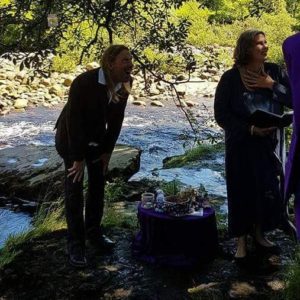
Loz and I the moment we see his beloved Kate arriving to join us and their guests beside the waterfall.
When I train celebrants, we talk about what makes a marriage commitment real. Is it the legal document the couple signs? Is it the wedding ceremony they share with friends and family? Indeed, does an elopement with only two witnesses constitute the same level of commitment as a ceremony with many witnesses? Is marriage God ordained? Does the legal signing of a document bond a couple? All these questions are important to ask, and from a celebrant point of view, I believe it is vital that we understand our own beliefs about relationships and bonding. What do we, as celebrants, energetically bring to the unions (traditional or otherwise) that we are so privileged to be part of?
Who decides if a bond is valid and/or sacred? Who has the right to ordain this? What words or actions need to be spoken or enacted to give credence to this rite of passage? Indeed, is a bonding ceremony considered meaningful only if it is in tandem with the legal contract? (which is essentially notification to the government about a change in taxation status [read that bit about the legal contract again])
It is because of all these questions/answers, and more, that some couples are turning towards civil partnership. Apart from the uninspiring label (no doubt decided upon by a civil servant), what couples like these are looking for is to have their loving relationship recognised for the co-creative equal union that it is, and in some cases they’re quite happy to sign the legal document and then carry on with life as per normal while enjoying the financial benefits that this brings.
For others, they wish to bring in the simplicity and balance that comes with identifying as partners rather than traditional titles but would also like a ceremony to share their commitment in front of loved ones. From a ceremony-creation point of view, this can still be as beautiful, romantic, creative, life affirming, and rich with symbolism, as any traditional wedding ceremony or alternative one. My job, as ever, is about creating a ceremony which reflects whatever is meaningful to the couples I work with, and which honours the truth about their lives and choices.
Veronika Robinson is a celebrant in Cumbria and has officiated all manner of ceremonies, internationally, since 1995. www.veronikarobinson.com/celebrant She’s the editor of The Celebrant magazine www.thecelebrantmagazine.co.uk and celebrant trainer at Heart-led Ceremonies Celebrant Training. www.veronikarobinson.com/celebrant-training
Veronika is currently the president of the Association of Independent Celebrants (AOIC).



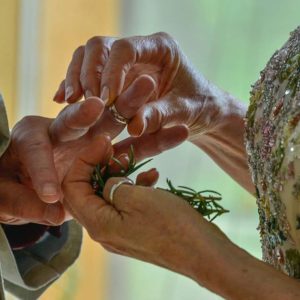


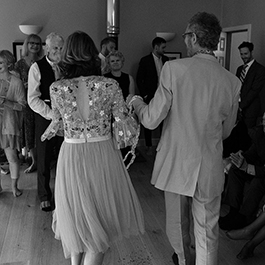

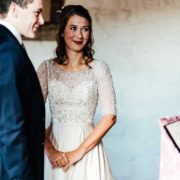
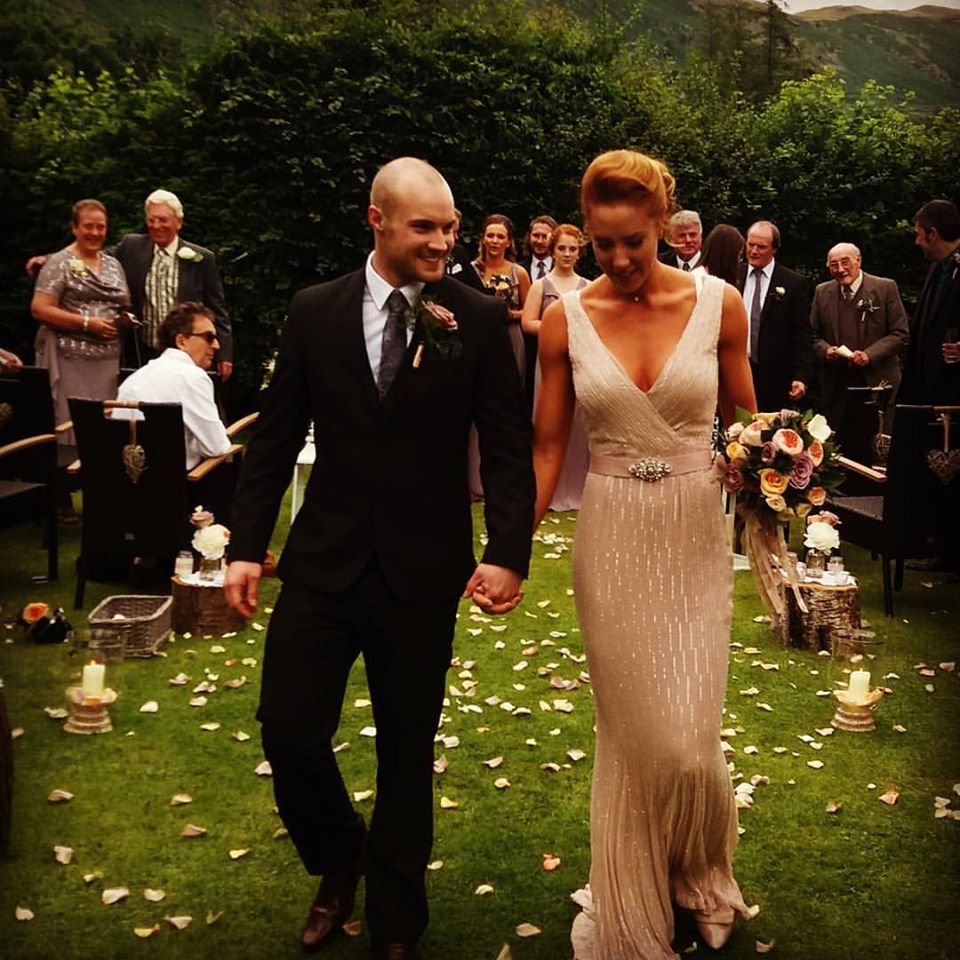




Leave a Reply
Want to join the discussion?Feel free to contribute!